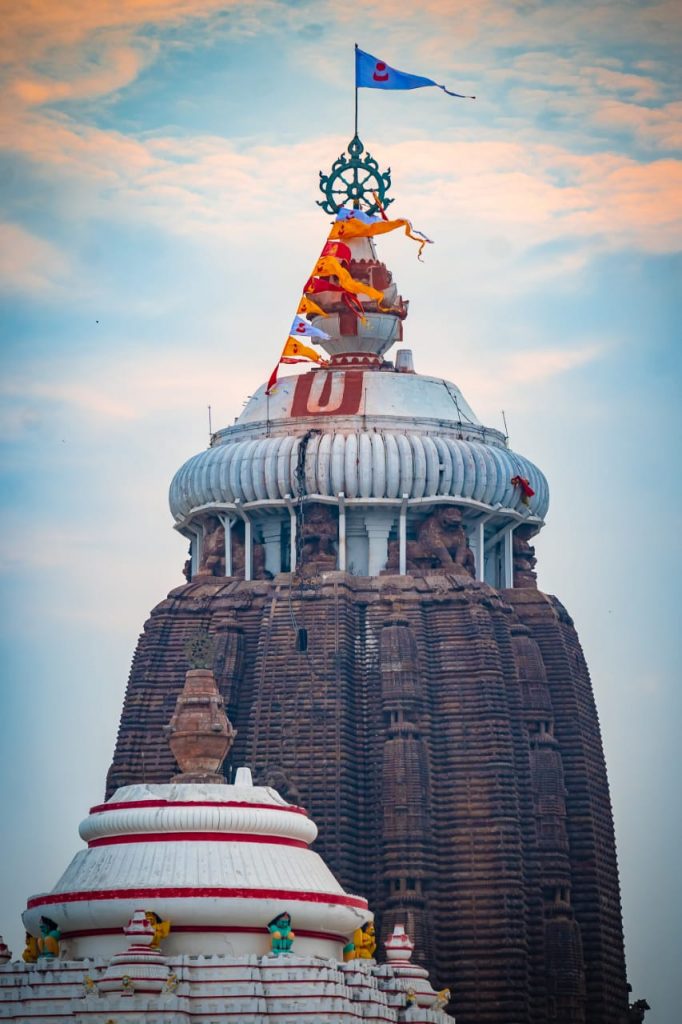Lord Jagannath, the most revered deity in Odisha and among the countless worshippers throughout the nation and the world, serves as the hub of the country’s pervasive spiritual consciousness.
The Indian culture is incomplete without taking the Jagannath culture into account. Since ancient times, it has been spreading the message of love, peace, friendship, unity, and integrity, which is India’s greatest asset. Only because of the influence of Jagannath culture has Indian culture been enriched.
Throughout history, there have been a number of spiritual awakenings in Puri, the home of Lord Jagannath. Leading figures from other religions have travelled to Puri over their lifetimes and have come to accept the magnificence, all-pervasiveness, and mysticism of the Trinity and their adoration.
A visit to Puri for a darshan of Lord Jagannath is a pilgrimage of fusion and a melting pot of all thoughts and faiths including the learned and the unlearned, the religious preachers, the historians, the scientists, the philosophers, the researchers and the great minds of all ages.
The Jagannath culture already exemplifies the unity, peace, worldwide integration, and fraternity that world leaders are aiming for. It has already incorporated the ideals of religious secularism, religious tolerance, intergroup harmony, and world peace.
The fundamental principle of Jagannath culture is that we are all members of the same family. Additionally, it conveys the ‘Bausdhaiva Kutumbakam’ message, which calls for universal harmony across all communities and religious sects.
A number of historians also concur that it is the only religion capable of sustaining not only Indian civilization but also the human race as a whole.
In addition, with Lord Jagannath being the most respected deity in this planet, Jagannath culture has come to be recognised as the beacon of all spiritual movements that have occurred in the nation.
He is the Shabar Devata for the Adivasis and Salabega, a Muslim devotee,’s favourite deity. The Brahmins, Dalits, Hindus, Sikhs, Buddhists, Jains, Vaishnavites, Shaktas, and Shaivaites who worship him in their respective ways regard him as their most beloved deity.
According to legend, Bhakta Salabega, one of the ardent devotees of Lord Jagannath, stopped His chariot Nandighosh at Saradhabali on a Rath Yatra day in the past by making a potent appeal from Brundaban, over a thousand miles from Puri.
Even a fervent follower of Lord Ganesh known as Ganapati Bhatt in Maharashtra firmly thought that Ganesh was the greatest Lord. He was adamant that Lord Ganesh was the greatest, in his opinion. He wanted to go to Puri after learning about Lord Jagannath.
A day before Snana Purnima, he came at Puri. While at Srimandir, he observed Lord Jagannath on the Ratna Singhashan in anticipation of seeing Lord Ganesh. He was disheartened, nevertheless, and made the decision to go back after an unknown person suggested him to pray sincerely so that he may see the Lord in his desired form.
After praying, he closed his eyes. When he opened them, he was amazed to see Lord Ganesha in the idol of Lord Jagannath. He knelt down and pleaded with God for forgiveness.
It is already known that the philosophy of the Veda, the Bhagavad Gita, the Kalpasutra, the Tripitak, the Zend Avesta, the Bible, the Quran, the Guru Granth Sahib, and other holy literature has been incorporated into the Jagannath culture. According to legend, people who practise other religions have worked hard throughout history to make Lord Jagannath their chosen deity.
As rivers lose their identity after flowing into seas, so have followers of many faiths lost their own characteristics upon assimilating into the Jagannath culture. The ocean of Indian culture is found in Srikshetra, the abode of Lord Jagannath. While many religious leaders have come to Puri to spread their doctrines, none of them have been able to overpower Lord Jagannath.
The worship of ‘Brahma’ is what is meant when we worship Lord Jagannath. It is via Lord Jagannath’s symbolic representation that the Shaivaites discovered Shiva, the Vedic scholars discovered Brahma, the Buddhists Buddha, and the Jains Mahavirs as their Gods.
Thus, it may be reasonably assumed that although if followers of Lord Jagannath come from a variety of religious backgrounds, the deity Himself is not affiliated with any one religion. Instead, it has demonstrated respect for all nations and religious groups and has proven to be a true representation of secularism.
Suman Mohanty, OP
